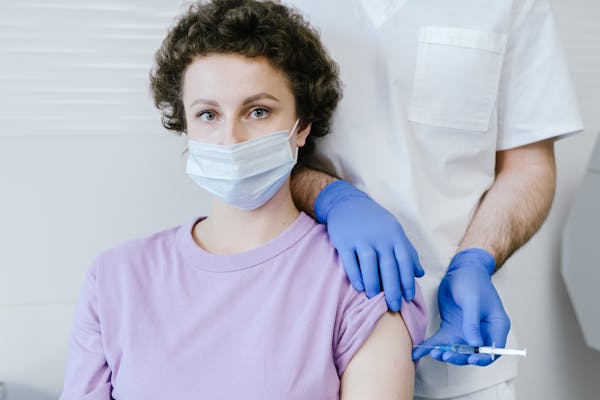Follow us and share.
Everything you need to know to prevent cervical cancer
Cervical cancer is one of the most common types of cancer among women worldwide, but it is also one of the most preventable if detected early.
Prevention and education are key to reducing the incidence of this disease. In this article, we'll tell you everything you need to know about cervical cancer, how to prevent it, and what steps you can take to protect your health.

What is cervical cancer?
Cervical cancer affects the cervix, which is the lower part of the uterus that connects to the vagina. This type of cancer usually develops from abnormal cells in the cervix, which can take several years to become cancerous. The main cause of this cancer is human papillomavirus (HPV), a very common sexually transmitted infection.
Risk factors
There are several factors that increase the risk of developing cervical cancer. Some of the most important include:
- Persistent HPV infection: It is the main risk factor. Although most HPV infections resolve on their own, some can persist and cause changes in cervical cells.
- Age: The risk of cervical cancer increases in women over 30 years of age.
- Sexual history: Starting sexual activity at an early age or having multiple sexual partners increases the risk of HPV infection.
- Smoking:Women who smoke have twice the risk of developing this type of cancer compared to non-smokers.
- Weakened immune system: Women with HIV or other conditions that weaken the immune system are at higher risk.
Symptoms of cervical cancer
Cervical cancer in its early stages usually presents no symptoms, highlighting the importance of regular screening. However, as the disease progresses, it can manifest symptoms such as:
- Abnormal vaginal bleeding, especially after sexual intercourse or between menstrual periods.
- Pelvic pain or pain during sexual intercourse.
- Unusual vaginal discharge, which may be watery or have an unpleasant odor.
If you experience any of these symptoms, it is essential to see a doctor for a complete evaluation.
Preventive measures
There are several ways to reduce your risk of developing cervical cancer. Here are the most effective preventive measures:
1. HPV vaccine
Vaccination is one of the most effective ways to prevent cervical cancer. The HPV vaccine protects against the HPV types that cause most cases of this cancer. It is recommended that girls and boys receive the vaccine between the ages of 9 and 14, before they become sexually active, but it can also be given to young women and adults.

2. Pap smear and HPV test
He Pap smear It's a test that detects changes in cervical cells before they turn into cancer. It's recommended that women begin this test starting at age 21 and repeat it every three years if the results are normal.
The HPV test, which detects the presence of the virus, can also be an effective screening tool, especially in women over 30. Both tests are essential for detecting precancerous cellular changes early.
3. Safe sex practices
Using condoms every time you have sex can reduce your risk of contracting HPV and other sexually transmitted infections. Although they don't completely eliminate the risk, they are an effective protective barrier.
4. Quit smoking
Tobacco weakens the immune system, which can make it harder for the body to fight infections like HPV. Quitting smoking is one of the best decisions you can make to improve your overall health and reduce your risk of developing cervical cancer.
5. Maintain a strong immune system
Taking care of your immune system is essential to preventing infections and diseases. Eat a balanced diet, exercise regularly, and manage stress to keep your immune system in optimal condition.
Treatment and early diagnosis
Cervical cancer, when detected in its early stages, has a high cure rate. If screening tests indicate abnormal changes in cervical cells, your doctor may recommend procedures to remove or treat these cells before they develop into cancer. If cancer is diagnosed at an advanced stage, treatment may include surgery, radiation therapy, and chemotherapy.
Conclusion: Take care of your health, prevention is in your hands
Cervical cancer is a preventable disease if the right measures are taken. Screening, vaccination, and safe sex practices are your best tools to reduce your risk. Don't hesitate to schedule regular medical checkups and maintain open communication with your doctor about any concerns related to your reproductive health. Prevention is key to protecting yourself.



